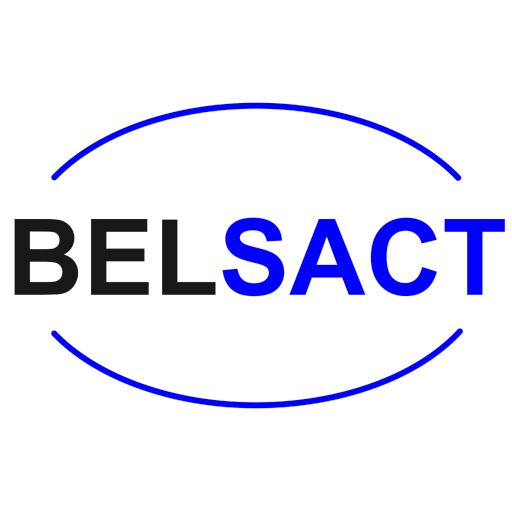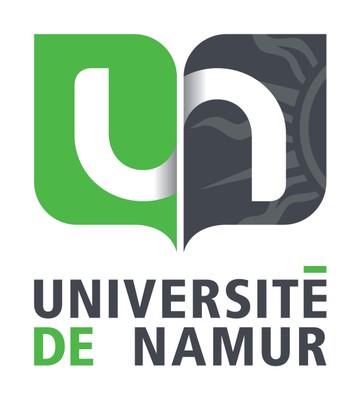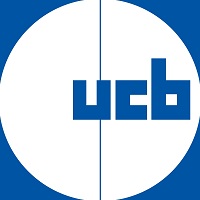Invited speakers
Dr Bassem Ben Yahia | UCB Pharma
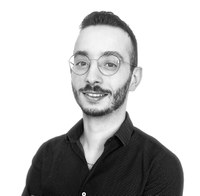 Bassem Ben Yahia is part of Upstream Process Sciences Group at UCB Pharma in Belgium since 2011 and is focusing on new process technologies for cell culture technologies, media development, process optimization, process intensification and process modeling.
Bassem Ben Yahia is part of Upstream Process Sciences Group at UCB Pharma in Belgium since 2011 and is focusing on new process technologies for cell culture technologies, media development, process optimization, process intensification and process modeling.
Passionate about biology and modelling biological systems, Bassem holds a PhD degree (2017) in Biochemistry & Biochemical Engineering from University of Saarlandes in Germany focused on predictive macroscopic modeling of Chinese hamster ovary cells in fed-batch processes. During his PhD, he successfully developed simple and robust modeling methodologies to predict cell culture performances which is currently used at UCB to accelerate early stage process development.
Presentation title | Process intensification opportunities, challenges and solutions: product quality, harvest and scale up considerations for intensified processes
Process intensification, both in N-1 (seed bioreactor) and N (production bioreactor) step, is well-developed and has led to very significant titer gains over the last years. Nevertheless, as the high productivity of intensified processes is achieved through very high cell densities, large amounts of impurities are sent through primary recovery to downstream processing (DSP) which could lead to lower product recovery yields, process variability and product quality challenges. In this presentation, we will share a state of the art on intensified processes, focusing mainly on high seeding density (HSD) processes with intensified N-1 step, and highlight some of the increased risks with such processes, i.e. (a) increased challenges during harvest and DSP steps (e.g. depth filter fouling and yield considerations in relation to HCP), (b) impact on product quality attributes (PQAs) and (c) increased risk of performance variability during scale up.
Dr Sébastien Colette | GSK Vaccines
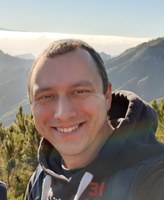 Sébastien Colette joined GSK Vaccines in 2013, in the Cell and Viral Drug Substance team of the Technical Research and Development Department. He is focusing on upstream process development (viral- and recombinant protein-based production processes), optimization, and intensification at different development phases (early and late projects, process transfer to commercial facilities, life cycle projects).
Sébastien Colette joined GSK Vaccines in 2013, in the Cell and Viral Drug Substance team of the Technical Research and Development Department. He is focusing on upstream process development (viral- and recombinant protein-based production processes), optimization, and intensification at different development phases (early and late projects, process transfer to commercial facilities, life cycle projects).
Sébastien holds a Master in Biomedical Sciences and a PhD in Biomedical and Pharmaceutical Sciences from University Catholique of Louvain, Brussels, Belgium (PhD devoted to the study of chronic gynecological inflammatory and estrogen-dependent disease: endometriosis).
Presentation title | CHO-based vaccine production process intensification and platformization
Dr. Muntasir Ali | Belgian Nuclear Research Centre (SCK CEN)
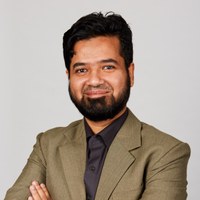 Md Muntasir Ali obtained his Bachelor in Biochemistry and Molecular Biology from University of Dhaka, Bangladesh and his Master of Science in Molecular Biology from KU Leuven, Belgium. He obtained his PhD from Vrije Universiteit Brussel with SCK CEN fellowship on the topic of bacterial metal resistance mechanisms. He received early career scientist award from the Federation of European Microbiological Societies (FEMS) for his contribution in the field of microbiology. Currently he is working as a Scientist at Belgian Nuclear Research Centre (SCK CEN), coordinating an innovative and cutting-edge research program called SpaceBakery.
Md Muntasir Ali obtained his Bachelor in Biochemistry and Molecular Biology from University of Dhaka, Bangladesh and his Master of Science in Molecular Biology from KU Leuven, Belgium. He obtained his PhD from Vrije Universiteit Brussel with SCK CEN fellowship on the topic of bacterial metal resistance mechanisms. He received early career scientist award from the Federation of European Microbiological Societies (FEMS) for his contribution in the field of microbiology. Currently he is working as a Scientist at Belgian Nuclear Research Centre (SCK CEN), coordinating an innovative and cutting-edge research program called SpaceBakery.
Presentation title | SpaceBakery: Breaking Bread on Mars
The SpaceBakery consortium is creating a closed ecological plant cultivation system and bakery that can provide the first settlers on Mars with sourdough bread as well as generate insights into sustainable and nutritious food production on Earth. To develop the ideal plant growth system for settlers on Mars, and at the same time tackle the challenges that come along with the environment, the research team is focusing on how agronomic conditions impact grain characteristics and derived products such as flour and sourdough bread.
Dr Ioannis Papantoniou | KU Leuven - Prometheus
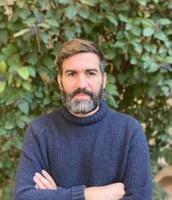 Ioannis Papantoniou is an Associate Professor at the Tissue Engineering Lab of the Skeletal Biology and Engineering Research Centre Department of Development and Regeneration, Faculty of Medicine, KU Leuven. He is also part of Prometheus, the translational division of LR&D of KU Leuven. In addition he is also a visiting PI at the Institute of Chemical Engineering Sciences, Foundation of Research and Technology (FORTH) in Greece. His main research focus is develop designed 3D cell-based products with built-in arranged quality attributes through high-precision bioengineering technologies for skeletal regeneration.
Ioannis Papantoniou is an Associate Professor at the Tissue Engineering Lab of the Skeletal Biology and Engineering Research Centre Department of Development and Regeneration, Faculty of Medicine, KU Leuven. He is also part of Prometheus, the translational division of LR&D of KU Leuven. In addition he is also a visiting PI at the Institute of Chemical Engineering Sciences, Foundation of Research and Technology (FORTH) in Greece. His main research focus is develop designed 3D cell-based products with built-in arranged quality attributes through high-precision bioengineering technologies for skeletal regeneration.
He is the scientific coordinator of the H2020 ‘Jointpromise’ project aiming at automating the biomanufacturing of organoid-based osteochondral implants and is also a participant and Board member of the recently launched H2020 project ‘AIDPATH’ aiming at the integration of Artificial Intelligence technologies in Cell Therapy Manufacturing. He has also obtained funding from European (H2020, INTERREG) and regional (FWO) sources and has coached several young researchers into obtaining personal PhD grants. He is member of the council of the TERMIS-EU society.
Presentation title | Organoid-based manufacturing of living implants for skeletal regeneration
Organoids enabled the recapitulation of robust biological processes encountered in developmental biology. This provided a revolutionary new way for engineering functional tissue implants moving from a trial & error approach to more mechanistic one enabling the incorporation of design principles. In my talk i will provide an overview of our research activities in the development of cartilaginous organoids that can regenerate skeletal defect. Moreover i will provide an overview of the engineering technologies and automation solutions that can enable the scalable manufacturing of such living skeletal implants in the future.
Thomas Robert | Univercells Technologies
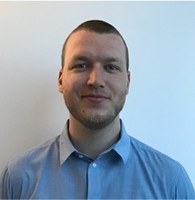 Thomas Robert currently serves as Product Manager for the NevoLine™ Upstream platform at Univercells Technologies. A biologist by training, he performed his Ph.D. in medical sciences focusing on stem-cell derived therapies for type 1 diabetes. Before taking on his current role, he worked as Field Application Scientist for Terumo BCT. Thomas has extensive knowledge of the Cell & Gene therapy field and expertise in Upstream process development, which he applies to drive the development and commercialization of best-in-class biomanufacturing solutions at Univercells Technologies.
Thomas Robert currently serves as Product Manager for the NevoLine™ Upstream platform at Univercells Technologies. A biologist by training, he performed his Ph.D. in medical sciences focusing on stem-cell derived therapies for type 1 diabetes. Before taking on his current role, he worked as Field Application Scientist for Terumo BCT. Thomas has extensive knowledge of the Cell & Gene therapy field and expertise in Upstream process development, which he applies to drive the development and commercialization of best-in-class biomanufacturing solutions at Univercells Technologies.
Presentation title | Addressing gene therapy commercialization bottlenecks through intensified and integrated manufacturing
With an ever-increasing pipeline of gene therapies, clinical and commercial translation of these life-saving medicines is bound to remain challenged by capacity constraints. Conventional production technologies present several limitations resulting in low performance, high footprint manufacturing. By combining the principles of intensification and chaining, the scale-X™ fixed-bed bioreactor and the NevoLine™ Upstream platform offer highly productive, low footprint viral manufacturing. During this talk, Dr Thomas Robert will focus on technological solutions designed to address key bottlenecks in viral manufacturing. Results from studies performed by scale-X™ users will be presented, highlighting the benefits of intensification & chaining in both adherent and suspension production platforms.
Sébastien Sart | Institut Pasteur
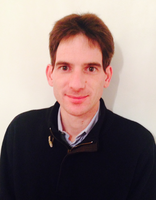 Sébastien Sart is a permanent research scientist at the Laboratory of Physical Microfluids and Bioenginerering of the Institut Pasteur (Paris, France) since 2011, by working on the expansion and differentiation of stem cells into bioreactors. Then, he did a first postdoc at Florida State University (USA) on the design of novel biomaterials for the culture of pluripotent stem cells. From 2013 to 2020, he held a second postdoctoral position at École Polytechnique and at Institut Pasteur (France) for the development of a droplet microfluidic platform for 3D cell culture and analysis. Currently, his major field of interest is the culture and differentiation of stem cells using droplet microfluidics.
Sébastien Sart is a permanent research scientist at the Laboratory of Physical Microfluids and Bioenginerering of the Institut Pasteur (Paris, France) since 2011, by working on the expansion and differentiation of stem cells into bioreactors. Then, he did a first postdoc at Florida State University (USA) on the design of novel biomaterials for the culture of pluripotent stem cells. From 2013 to 2020, he held a second postdoctoral position at École Polytechnique and at Institut Pasteur (France) for the development of a droplet microfluidic platform for 3D cell culture and analysis. Currently, his major field of interest is the culture and differentiation of stem cells using droplet microfluidics.
Presentation Title | Culture of Pluripotent Stem Cells and Derivation of Organoids using Droplet Microfluidics
The formation of organoids recapitulates the processes of self-organization, symmetry breaking and tissue patterning that occur during the embryonic development. These morphogenetic events are driven by the creation of specific niches promoting the spatially controlled differentiation into specialized cell types. The biochemical confinement of differentiating PSCs into oil-isolated droplets has the potential to regulate the autocrine signaling that trigger tissue patterning during differentiation, which has not been demonstrated so far. In this presentation, I will first present a new droplet microfluidic platform that sustains the long-term culture of mouse embryonic stem cells (mESCs) at the undifferentiated state using minimal culture volumes. The platform is then used to derive several types of organoids from mESCs (e.g. cardioids, retinal organoids). In particular, I will demonstrate that the culture of mESCs into anchored microfluidic droplets enables the maturation of gastruloids and embryonic-like structures (ELSs), a type of organoids that recapitulate the early steps of the embryonic development. I show that ELSs display a unique head-trunk structure, which demonstrates high degree of similarity with the stage E8.5 of the mouse embryonic development (i.e. gene expression and structural organization, such as patterned somites and brain-like structures). As such, the differentiation of PSCs into microfluidics droplets provides a novel approach towards the derivation of more functional organoids, in view of tissue engineering and disease modeling applications.
Kyle Zingaro | UCB, Head of Gene Therapy Process Sciences
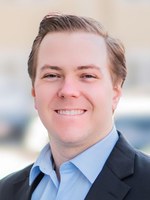 Dr. Kyle Zingaro serves as the Head of Gene Therapy Process Sciences at UCB where he is accountable for the leadership of drug substance and drug product process development and external manufacturing for UCBs gene therapy portfolio. Prior to joining UCB, Kyle was Head of Process Sciences at Thermo Fisher Scientific Viral Vector Services (formerly Brammer Bio) where he was responsible for leading commercial stage tech transfer and late-phase process development of Thermo Fisher's cell & gene therapy offerings. He holds a B.S. in biochemistry from Virginia Tech and a Ph.D. in chemical engineering from the University of Delaware.
Dr. Kyle Zingaro serves as the Head of Gene Therapy Process Sciences at UCB where he is accountable for the leadership of drug substance and drug product process development and external manufacturing for UCBs gene therapy portfolio. Prior to joining UCB, Kyle was Head of Process Sciences at Thermo Fisher Scientific Viral Vector Services (formerly Brammer Bio) where he was responsible for leading commercial stage tech transfer and late-phase process development of Thermo Fisher's cell & gene therapy offerings. He holds a B.S. in biochemistry from Virginia Tech and a Ph.D. in chemical engineering from the University of Delaware.
Presentation title | Strategies for Intensification of rAAV Manufacturing Processes
The CMC development for gene therapies is a unique environment undergoing rapid evolution. Demand for these complex biological products is anticipated to increase rapidly, as are the technologies to manufacture and characterize them. To meet the commercial demand for gene therapy products such as recombinant adeno associated viruses (rAAV) highly accelerated and efficient development will be critical. Process intensification toolsets, adapted from industrial chemical engineering, have been successfully applied for protein biologics and could serve as a strong foundation to approach improvements for rAAV manufacturing processes. Here we consider the application of those toolsets for gene therapies and the distinct opportunities and challenges for their use for ATMPs.

